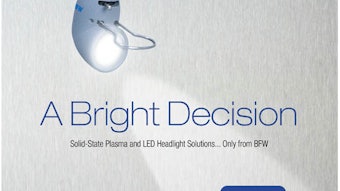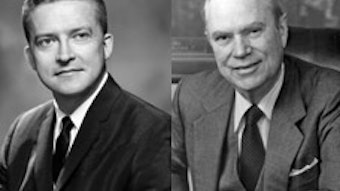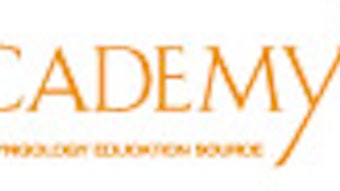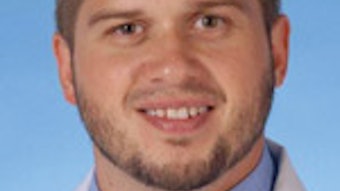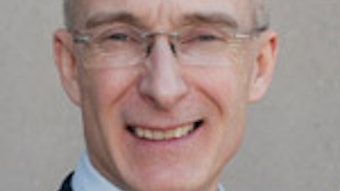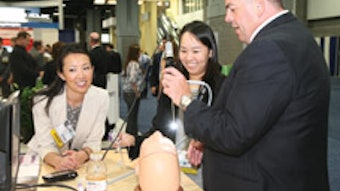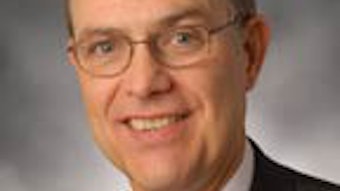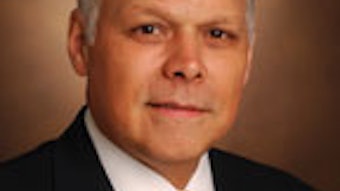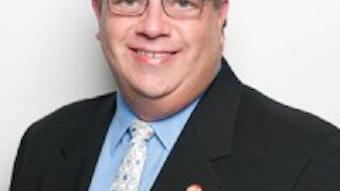Legislative Spotlight: Audiology on the Offensive in the 113th Congress
More than two years since the Affordable Care Act (ACA) became law, it is now much easier to decipher the good, the bad, and the ugly in terms of how the new law will work and where additional reforms may be required. However, many key questions remain. One of the main tenets of the ACA was the importance of providing healthcare coverage to more, if not all, individuals. Yet, the law failed to address growing physician workforce shortages and the cautionary words from the physician community that coverage does not equal access. As we approach major ACA implementation deadlines scheduled for this fall, many policymakers are examining the access issue with a wider lens and looking toward various non-physician providers as a means to accommodate the pending flood of newly covered individuals. The United States is fortunate as we offer talented healthcare professionals across a wide spectrum of training and skill levels. In theory, the ACA seeks to increase quality, efficiency, and better promote collaboration and the value of team-based care within the healthcare delivery system. These are good concepts that in many ways go hand-in-hand with the diversity that is already present in our healthcare system. However, we must remain diligent in our efforts to ensure that the right provider is delivering the appropriate care at the correct time. The AAO-HNS believes that all properly trained and licensed healthcare professionals should be able to practice to the full extent of their applicable scope of practice. However, as healthcare reform implementation continues, we hope policymakers continue to view physician-led, team-based care as the core of our current and any future healthcare delivery system. To put this particular notion in context, we need only look to pending legislation in the 113th Congress. This year, the AAO-HNS expects the introduction of three separate audiology-related bills. The bills, which represent both new and old legislative strategies, highlight how the ACA has in some ways provided a new platform by which some non-physician providers are attempting to broaden their role in terms of healthcare delivery. The AAO-HNS has been carefully monitoring the various legislative proposals, and in some cases has successfully collaborated with the audiology community to ensure patients continue to have access to the highest quality hearing healthcare. Read on for a brief overview of each audiology initiative and the accompanying AAO-HNS position. ‘Direct Access’ As in past years, the American Academy of Audiology (AAA) is continuing its pursuit of direct access to Medicare patients without a physician referral. While audiologists play a critical role in providing quality hearing healthcare, AAA’s desire for its members to independently diagnose hearing disorders transcends their level of training and expertise. Hearing and balance disorders are medical conditions and require, by necessity, a full patient history and physical examination by a physician. In its 2007 report on the audiology direct access issue, the Centers for Medicare & Medicaid Services (CMS) declared that referrals from physicians are the “key means by which the Medicare program assures that beneficiaries are receiving medically necessary services, and avoids potential payment for asymptomatic screening tests that are not covered by Medicare…” Bypassing a physician evaluation and referral can lead to misdiagnosis and inappropriate treatment that could cause lasting, and expensive, damage to patients. The AAO-HNS continues to oppose direct access and will work to ensure our position is well understood on Capitol Hill once legislation has been introduced. Amending the Definition of ‘Physician’ In November 2012, the Academy of Doctors of Audiology (ADA) announced its “18 x 18” campaign. The goal of the new campaign and pending legislative initiative is to amend Title XVIII (18) of the Social Security Act to include audiologists in the definition of “physician” by the year 2018. The 18 x 18 Campaign is the most ambitious, and troubling, audiology proposal. Although many audiologists now receive a “doctor of audiology,” or AuD degree, their training is not equal to that of an MD/DO who has also completed residency, and in some cases, additional fellowship in otolaryngology–head and neck surgery. The AAO-HNS strongly opposes the “18 x 18” campaign and is working to ensure Members of Congress and their staffs are well-informed about the expertise and/or training associated with MD/DO physicians as compared to non-physician providers with advanced “doctor” degree such as an AuD. Comprehensive Audiology Benefit (H.R. 2330) Recognizing the pitfalls associated with direct access and the “18 x 18” campaign, the American Speech-Language and Hearing Association (ASHA) has taken a much more pragmatic approach in elevating the audiology professional. By way of its new initiative, introduced as legislation (H.R. 2330) for the first time this year by U.S. Rep. Gus Bilirakis (R-FL-12), ASHA hopes to better align Medicare coverage of comprehensive audiology services with current billing and reimbursement standards of other non-physician therapeutic services covered by Medicare (PT, OT, SLP). In recognizing the importance of team-based care, H.R. 2330 specifically retains the requirement for a physician referral, ensures physician oversight of the plan of care, and preserves state scope-of-practice requirements. Prior to the introduction of H.R. 2330, representatives from ASHA solicited feedback from the AAO-HNS on its proposal, demonstrating it shares the AAO-HNS’ belief that strong, positive collaboration between audiologists and otolaryngologist-head and neck surgeons will result in the highest quality care and outcomes for individuals seeking hearing healthcare services. As a result, the leadership of the AAO-HNS has approved a “support” position on H.R. 2330. As implementation of the ACA moves forward, the AAO-HNS Government Affairs team will continue to monitor the direct and indirect impact the law may have on our members, their practices, and their patients—including any efforts to inappropriately expand scope of practice. For more information about audiology legislation in the 113th Congress and/or updates on other AAO-HNS legislative priorities, email legfederal@entnet.org or visit www.entnet.org/advocacy.
More than two years since the Affordable Care Act (ACA) became law, it is now much easier to decipher the good, the bad, and the ugly in terms of how the new law will work and where additional reforms may be required. However, many key questions remain. One of the main tenets of the ACA was the importance of providing healthcare coverage to more, if not all, individuals. Yet, the law failed to address growing physician workforce shortages and the cautionary words from the physician community that coverage does not equal access. As we approach major ACA implementation deadlines scheduled for this fall, many policymakers are examining the access issue with a wider lens and looking toward various non-physician providers as a means to accommodate the pending flood of newly covered individuals.
The United States is fortunate as we offer talented healthcare professionals across a wide spectrum of training and skill levels. In theory, the ACA seeks to increase quality, efficiency, and better promote collaboration and the value of team-based care within the healthcare delivery system.
To put this particular notion in context, we need only look to pending legislation in the 113th Congress. This year, the AAO-HNS expects the introduction of three separate audiology-related bills. The bills, which represent both new and old legislative strategies, highlight how the ACA has in some ways provided a new platform by which some non-physician providers are attempting to broaden their role in terms of healthcare delivery.
The AAO-HNS has been carefully monitoring the various legislative proposals, and in some cases has successfully collaborated with the audiology community to ensure patients continue to have access to the highest quality hearing healthcare. Read on for a brief overview of each audiology initiative and the accompanying AAO-HNS position.
‘Direct Access’
As in past years, the American Academy of Audiology (AAA) is continuing its pursuit of direct access to Medicare patients without a physician referral. While audiologists play a critical role in providing quality hearing healthcare, AAA’s desire for its members to independently diagnose hearing disorders transcends their level of training and expertise. Hearing and balance disorders are medical conditions and require, by necessity, a full patient history and physical examination by a physician. In its 2007 report on the audiology direct access issue, the Centers for Medicare & Medicaid Services (CMS) declared that referrals from physicians are the “key means by which the Medicare program assures that beneficiaries are receiving medically necessary services, and avoids potential payment for asymptomatic screening tests that are not covered by Medicare…” Bypassing a physician evaluation and referral can lead to misdiagnosis and inappropriate treatment that could cause lasting, and expensive, damage to patients. The AAO-HNS continues to oppose direct access and will work to ensure our position is well understood on Capitol Hill once legislation has been introduced.
Amending the Definition of ‘Physician’
In November 2012, the Academy of Doctors of Audiology (ADA) announced its “18 x 18” campaign. The goal of the new campaign and pending legislative initiative is to amend Title XVIII (18) of the Social Security Act to include audiologists in the definition of “physician” by the year 2018. The 18 x 18 Campaign is the most ambitious, and troubling, audiology proposal. Although many audiologists now receive a “doctor of audiology,” or AuD degree, their training is not equal to that of an MD/DO who has also completed residency, and in some cases, additional fellowship in otolaryngology–head and neck surgery. The AAO-HNS strongly opposes the “18 x 18” campaign and is working to ensure Members of Congress and their staffs are well-informed about the expertise and/or training associated with MD/DO physicians as compared to non-physician providers with advanced “doctor” degree such as an AuD.
Comprehensive Audiology Benefit (H.R. 2330)
Recognizing the pitfalls associated with direct access and the “18 x 18” campaign, the American Speech-Language and Hearing Association (ASHA) has taken a much more pragmatic approach in elevating the audiology professional. By way of its new initiative, introduced as legislation (H.R. 2330) for the first time this year by U.S. Rep. Gus Bilirakis (R-FL-12), ASHA hopes to better align Medicare coverage of comprehensive audiology services with current billing and reimbursement standards of other non-physician therapeutic services covered by Medicare (PT, OT, SLP). In recognizing the importance of team-based care, H.R. 2330 specifically retains the requirement for a physician referral, ensures physician oversight of the plan of care, and preserves state scope-of-practice requirements. Prior to the introduction of H.R. 2330, representatives from ASHA solicited feedback from the AAO-HNS on its proposal, demonstrating it shares the AAO-HNS’ belief that strong, positive collaboration between audiologists and otolaryngologist-head and neck surgeons will result in the highest quality care and outcomes for individuals seeking hearing healthcare services. As a result, the leadership of the AAO-HNS has approved a “support” position on H.R. 2330.
As implementation of the ACA moves forward, the AAO-HNS Government Affairs team will continue to monitor the direct and indirect impact the law may have on our members, their practices, and their patients—including any efforts to inappropriately expand scope of practice.
For more information about audiology legislation in the 113th Congress and/or updates on other AAO-HNS legislative priorities, email legfederal@entnet.org or visit www.entnet.org/advocacy.

